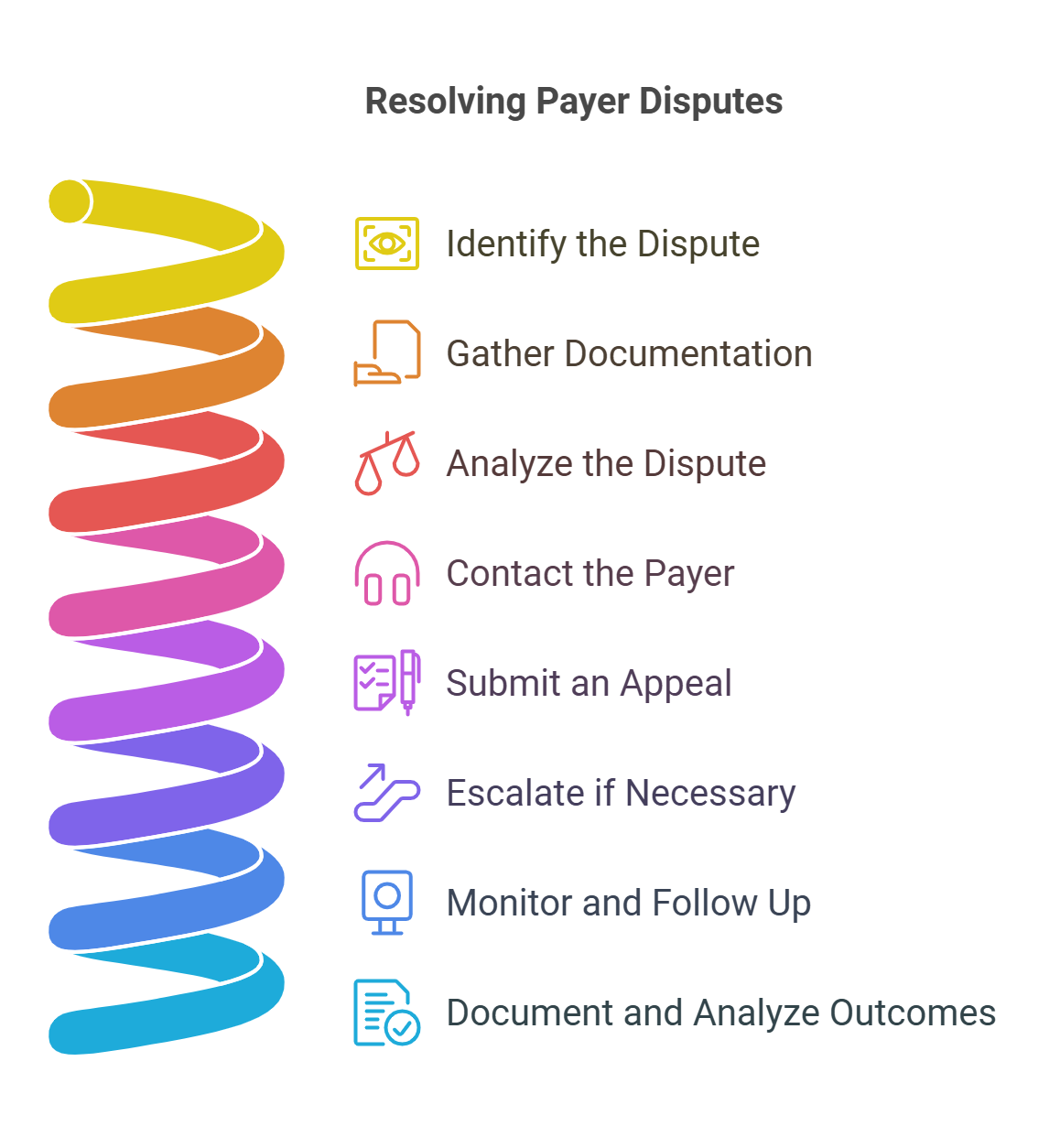Introduction
Contract disputes with payers are a frustrating reality for many DME providers. Whether it’s reimbursement rates, denied claims, or restrictive terms, these conflicts can disrupt cash flow and strain payer-provider relationships.
However, disputes don’t have to spell disaster. With a structured approach and the right strategies, you can navigate disagreements effectively, protect your interests, and even strengthen your negotiating position.
In this blog, we’ll explore common reasons payers push back, strategies for resolving disputes, and proactive steps to avoid conflicts in the first place.
Common Causes of Payer-Provider Disputes
- Low Reimbursement Rates
Payers often propose rates below market averages, making it difficult to maintain profitability. - Claim Denials and Payment Delays
Errors in contract terms or misaligned expectations can lead to frequent denials and late payments. - Restrictive Prior Authorization Requirements
Some contracts impose burdensome requirements that delay patient care and reimbursement. - Ambiguous Contract Language
Vague terms or missing details in agreements can create misunderstandings and disputes later on. - Unilateral Changes by Payers
Payers may adjust fee schedules or policies without adequate notice, leading to unexpected financial impacts.
Strategies for Resolving Contract Disputes
- Review the Contract Thoroughly
- Why It Works: Many disputes stem from unclear or misunderstood terms.
- How to Do It:
- Identify the specific clauses causing the conflict.
- Consult legal counsel or a contracting expert to clarify obligations and rights.
- Gather Supporting Data
- Why It Works: Objective evidence strengthens your case.
- How to Do It:
- Compile documentation such as denied claims, prior correspondence, or relevant market data.
- Use analytics to show the financial or operational impact of the issue.
- Open Lines of Communication
- Why It Works: Many disputes are resolved through direct negotiation.
- How to Do It:
- Request a meeting with your payer representative to discuss the issue.
- Clearly state your concerns and propose mutually beneficial solutions.
- Escalate When Necessary
- Why It Works: Higher-level payer representatives may have the authority to adjust terms.
- How to Do It:
- Escalate unresolved disputes to a payer’s appeals department or contracting manager.
- Maintain professionalism and document all communications.
- Consider Third-Party Mediation
- Why It Works: Neutral mediators can help find common ground.
- How to Do It:
- Engage a third-party arbitrator with expertise in healthcare disputes.
- Present your case and be open to compromise.

Proactive Steps to Prevent Disputes
- Clarify Terms During Negotiation
- Ensure all contract language is precise and mutually understood before signing.
- Maintain Open Communication
- Regularly touch base with payer representatives to discuss concerns and updates.
- Document Everything
- Keep detailed records of all interactions, agreements, and contract amendments.
- Monitor Contract Performance
- Use analytics to track reimbursement patterns and identify discrepancies early.
- Partner with Experts
- Work with credentialing and contracting professionals to ensure terms are fair and aligned with your goals.
How WWS Can Help
Contract disputes don’t have to disrupt your business. WWS provides the expertise and support you need to resolve conflicts efficiently:
- Contract Analysis: We identify ambiguous terms and potential pitfalls before they become disputes.
- Negotiation Support: Our experts communicate directly with payers to advocate for your interests.
- Dispute Resolution Expertise: From appealing denied claims to escalating unresolved issues, we handle the complexities so you can focus on patient care.
Schedule a consultation with WWS today to protect your practice and secure better outcomes with payers:
Schedule a Meeting with WWS.
Conclusion
Payer pushback is inevitable, but with the right approach, it doesn’t have to hinder your operations. By understanding common causes, leveraging effective strategies, and working with experienced partners, you can turn disputes into opportunities for growth and improvement.
Don’t let contract disputes slow you down—partner with WWS to safeguard your interests. Schedule your consultation today!




